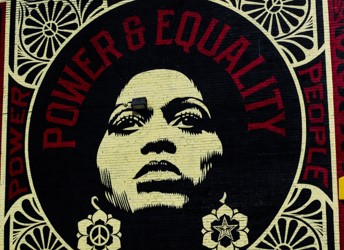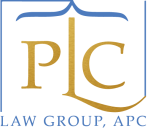Client Resources & Information

At PLC Law Group, we want to empower our clients and the community. We prioritize client education so that you can make informed choices. We want you to feel in charge and empowered as we proceed through your case.
We regularly consult with you regarding your case, making sure to continually aim our defense, our claim, and our strategy toward achieving the justice you envisioned. We believe in being completely transparent, so our partnership reaches the best possible outcome.
Use the links below to further familiarize yourself with your legal matter and explore the resources that may be helpful for your case
Frequently Asked Questions (FAQs)
Common questions we receive during our case reviews and our client meetings. Feel free to message us with any additional questions or concerns.
Police Brutality & Misconduct Resources
Police Assessment Resource Center (PARC) – Conduct ongoing oversight of the Los Angeles County Sheriff’s Department with respect to use of force, officer performance management, supervision, discipline, training, and effectiveness.
Funders for Justice – A national funder organizing platform focused on grassroots organizing led by and for people of color at the intersections of racial justice, gender justice, criminalization, and models for community safety and justice.
The Violent Crime Control and Law Enforcement Act and other laws that prohibit law enforcement misconduct.
Civil Rights & Discrimination Resources
File a discrimination claim with the Equal Employment Opportunity Commission (EEOC) or California Department of Fair Employment and Housing (DFEH).
California’s definition of independent contractor vs employee.
ACLU of Southern California – Defends the fundamental rights outlined in the United States Constitution and the Bill of Rights. These include the right to freedom of speech and assembly, the right to religious freedom, due process of law, equality before the law and the right to privacy.
The Impact Fund – Provides strategic leadership and support for litigation to achieve economic and social justice. They provide funds for impact litigation in the areas of civil rights, environmental justice, and poverty law.
Workplace Fairness Organization – A non-profit organization working to preserve and promote workplace rights.
Strategic Concepts in Organizing and Policy Education (SCOPE) – builds grassroots power to create social and economic justice for low-income, immigrant, woman, femme, black, and brown communities in Los Angeles.
The Los Angeles Black Worker Center – Develops organized power and authentic grassroots leadership among Black workers (unionized, non-union, immigrant, formerly incarcerated and the unemployed) and the community, to reverse the disproportionate levels of unemployment and underemployment in Los Angeles.
Insight Center – A national research and economic justice organization working to ensure that all people become and remain economically secure.
U.S. Acts That Protect Your Civil Rights & Freedoms
The Americans with Disabilities Act (ADA) and other laws that prohibit disability discrimination.
The Fair Housing Act – The act was created on the principle that every American should have an equal opportunity to seek a place to live, without being afraid of discrimination due to factors outside their control.
The Equal Credit Opportunity Act (ECOA) – Ensures that all consumers are given an equal chance to obtain credit. Learn about the Equal Credit Opportunity Act from Cambridge Credit Counseling.
The Equal Educational Opportunities Act (EEOA) and other laws that prohibit discrimination in schools.
Title II of the Civil Rights Act, prohibits discrimination based on race, color, religion, and national origin in places of public accommodation.
Title VI of the Civil Rights Act, which prohibits discrimination based on race, color, and national origin by programs that receive federal financial assistance.
Title VII of the Civil Rights Act, which prohibits discrimination based on race, color, national origin, sex, and religion by state and local government employers.
The anti-discrimination provision of the Immigration and Nationality Act (INA), which prohibits employment discrimination based on citizenship status and national origin.
The Civil Rights of Institutionalized Persons Act (CRIPA) – Protects the rights of people in state or local correctional facilities, nursing homes, mental health facilities and institutions for people with intellectual and developmental disabilities.
The Matthew Shepard and James Byrd, Jr., Hate Crimes Prevention Act – Expanded the 1969 United States federal hate-crime law to include crimes motivated by a victim’s actual or perceived gender, sexual orientation, gender identity, or disability.
Criminal Defense Resources
Los Angeles County bail schedule – misdemeanor and felony bail schedule and guidelines.
California Department of Corrections and Rehabilitation Inmate Locator – Locate someone Search for someone jailed or in a California prison.
Prison Policy Initiative – Non-profit, non-partisan produces cutting edge research to expose the broader harm of mass criminalization, and starts advocacy campaigns to create a more just society.
Personal Injury Resources
The Mayo Clinic on slip and fall prevention.
Centers of Disease Control on dog bite injury.
California Department of Motor Vehicles – Go here to request your driver record online, locate DMV driver safety offices, and learn about vehicle insurance information and requirements.
California Department of Transportation – Online services here include reporting a pothole or submitting a maintenance request, reporting a traffic problem or submitting a claim to personal property damage caused by Caltrans.
National Highway Traffic Safety Administration (NHTSA) – This arm of the United States Department of Transportation has information on vehicle ratings, safety recalls, risky driving, road safety and more.
Distraction.gov – This NHTSA website is dedicated to raising awareness about distracted driving such as handheld use of a cellphone while driving and texting while driving.
Federal Motor Carrier Safety Administration (FMCSA) is responsible for preventing commercial motor vehicle-related fatalities and injuries in the US. Adopts safety regulations for tractor-trailers and sets maximum hours of service for truck drivers. You can look here for evidence of noncompliance of these regulations to help with your truck accident claim.
Consumer Product Safety Commission – Learn the latest news on product safety, including recalls of defective consumer products. Also visit www.Recalls.gov for alerts on recalls related to consumer products, automobiles, tires, contaminated food, dangerous drugs and defective medical devices, and more.
Division of Workers’ Compensation (DWC) – Monitors the administration of workers’ compensation claims, and provides administrative and judicial services to assist in resolving disputes that arise in connection with claims for workers’ compensation benefits.
Occupational Safety and Health Administration (OSHA) – Ensures safe and healthful working conditions for working men and women in the US. Sets and enforces industry standards, provides training, outreach, education and assistance to businesses. You can go here if you have questions about your workplace safety.
National Institute for Occupational Safety and Health (NIOSH) – Research agency focused on the study of worker safety and health, and empowering employers and workers to create safe and healthy workplaces.
California Department of Industrial Relations (DIR) – Protects and improves the health, safety, and economic well-being of over 18 million wage earners and helps their employers comply with state labor laws.
Division of Occupational Safety and Health (DOSH), better known as Cal/OSHA - Protects and improves the health and safety of working men and women in California and the safety of passengers riding on elevators, amusement rides, and tramways.
